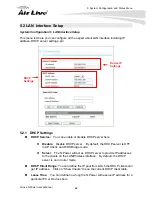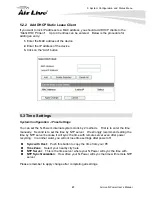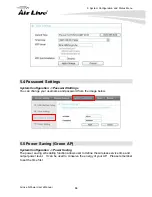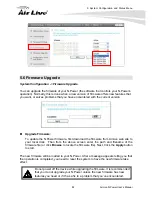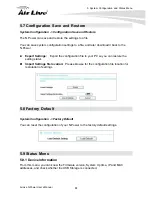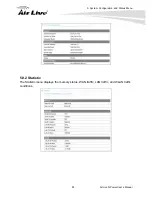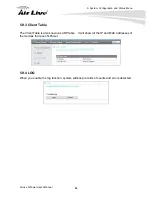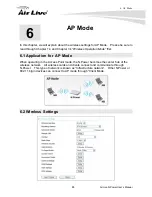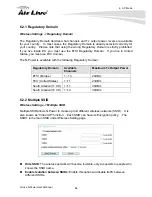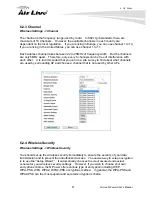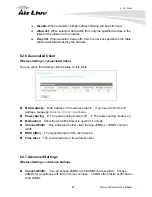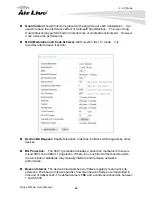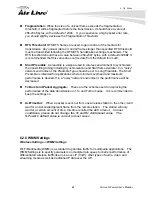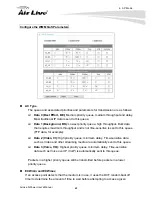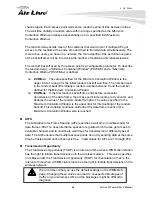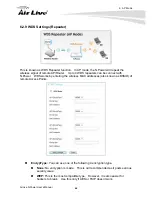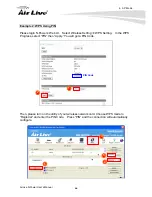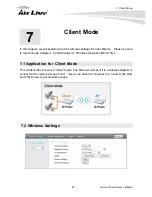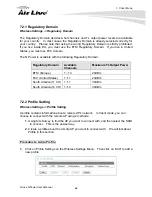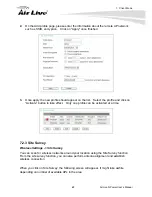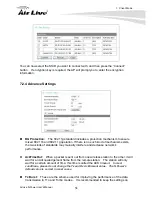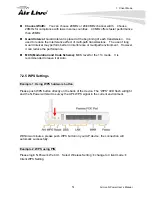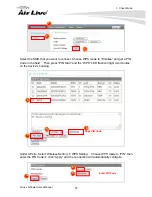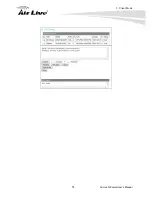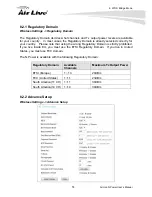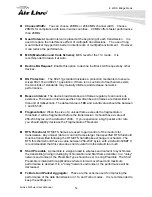
6. AP Mode
61
AirLive N.Power User’s Manual
Fragmentation:
When the size of a unicast frame exceeds the fragmentation
threshold, it will be fragmented before the transmission. It should have a value of
256-2346 bytes, with a default of 2346. If you experience a high packet error rate,
you should slightly decrease the Fragmentation Threshold.
RTS Threshold:
RTS/CTS frames are used to gain control of the medium for
transmission. Any unicast (data or control) frames larger than specified RTS threshold
must be transmitted following the RTS/CTS handshake exchange mechanism. The
RTS threshold should have a value between 256-2347 bytes, with a default of
2347
. It
is recommended that this value does not deviate from the default too much.
Short Preamble
: A preamble is a signal used in wireless environment to synchronize
the transmitting timing including Synchronization and Start frame delimiter. In a "noisy"
network environment, the Preamble Type should be set to Long Preamble. The Short
Preamble is intended for applications where minimum overhead and maximum
performance is desired. If in a "noisy" network environment, the performance will be
decreased.
Tx Burst and Packet Aggregate:
These are the scheme used for improving the
performance of the data transmission in 11n and Turbo modes. It is recommended to
keep the settings on.
AckTimeOut:
When a packet is sent out from one wireless station to the other, it will
wait for an Acknowledgement frame from the remote station. The station will only
wait for a certain amount of time; this time is called the ACK timeout.
In most
conditions, please do not change the Tx and Rx Acktimeout value. The
N.Power’s default value is correct in most cases.
6.2.8 WMM Settings
Wireless Settings -> WMM Settings
Wi-Fi Multimedia (WMM) is a standard to prioritize traffic for multimedia applications. The
WMM Settings is to specify parameters on multiple data queue for better performance of
differentiated wireless traffic like Voice-over-IP (VoIP), other types of audio, video, and
streaming media as well as traditional IP data over the AP.


